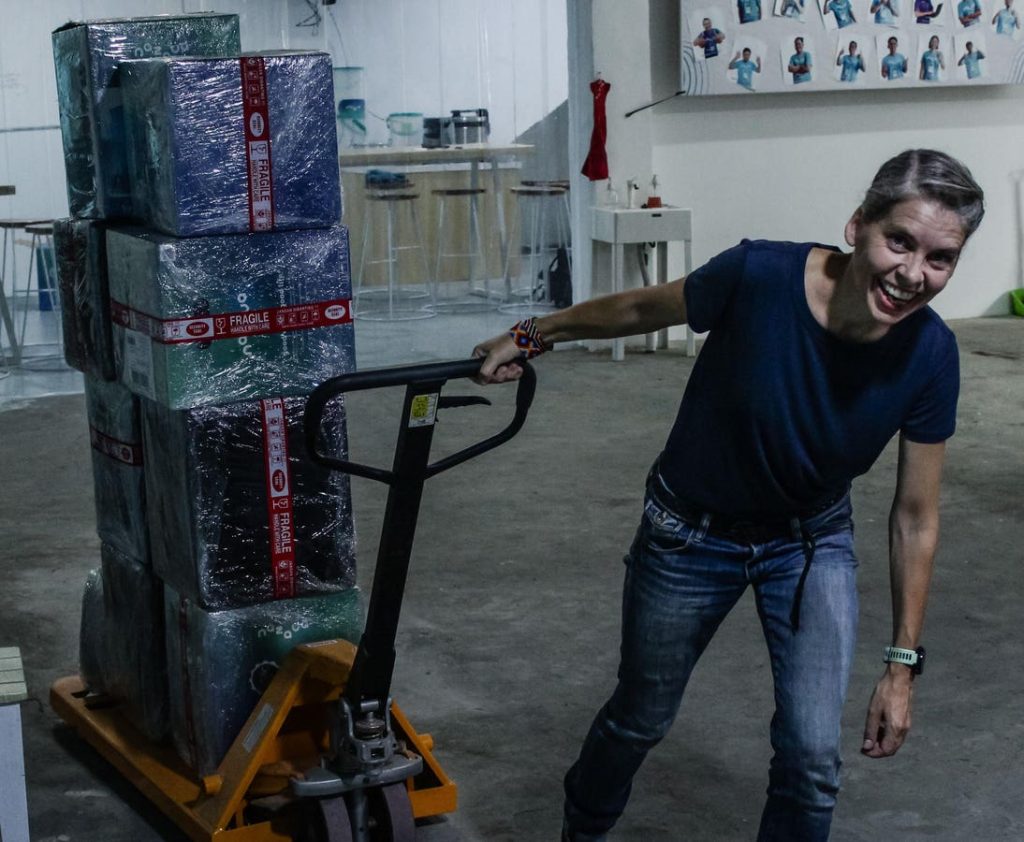Lieselotte Heederik and Guido van Hofwegen founded Nazava in Indonesia in 2007 to address the lack of clean, safe drinking water that was causing the deaths of thousands of children annually from diarrhea. They developed an affordable water filtration system aimed at low-income families, especially those in rural areas. However, it took ten years for them to refine their distribution system and find a model that worked best for selling their product through microfinance institutions in Indonesia and Kenya. Last year, the profitable company sold 40,000 units and has impacted over 600,000 people in more than 30 countries, primarily in Indonesia and Kenya.
The need for safe drinking water in Indonesia became apparent to the couple when they discovered that their own well water was contaminated, and the alternative was often tainted bottled water from refill stations. Lower-income rural families, especially mothers, were spending time searching for wood fuel to boil water and spending money on medicine for their children who were falling ill from the contaminated water. Nazava aimed to empower households by providing a water filter that could purify any water source, eliminating the need for boiling, saving time and money, and reducing plastic waste in Indonesia.
In 2009, the couple decided to sell their product and formed a for-profit company, feeling that NGOs were not creating the change they wanted to see. They initially tried selling through resellers but found it raised prices and diluted their mission of providing affordable products to low-income households. After experimenting with different sales methods, they settled on selling through microfinance institutions, targeting groups of lower-income women who could take out loans to purchase the water filter. The company also partnered with Kiva to reach more entrepreneurs who could sell the product in their villages and pay back the loan after selling enough filters.
After expanding into Kenya in 2022, Nazava utilized the existing infrastructure and distribution system of microfinance institutions to reach lower-income households. They received funding from Miller Center Capital to facilitate this expansion and also began selling online during the pandemic through platforms like TikTok, Instagram, and Facebook. By working with schools in Indonesia that lacked filtered drinking water, they were able to reach parents and promote their product to a wider audience. The company also started manufacturing their own buckets and ceramic filters to improve the appearance and quality of their products.
In 2018, Nazava was certified by the World Health Organization for bacterial removal, allowing them to export their products to countries like Nepal after natural disasters or wartime. They set up an assembly operation in Ukraine to employ refugees from the conflict-affected areas and continue their mission of providing safe drinking water. Overall, the company has raised about $2 million in loans and equity from organizations like Danone Communities, Kiva, and individual investors in Europe and Singapore. Through their innovative approach to water filtration distribution, Nazava has made a significant impact on improving access to clean water for low-income households in Indonesia and Kenya.


